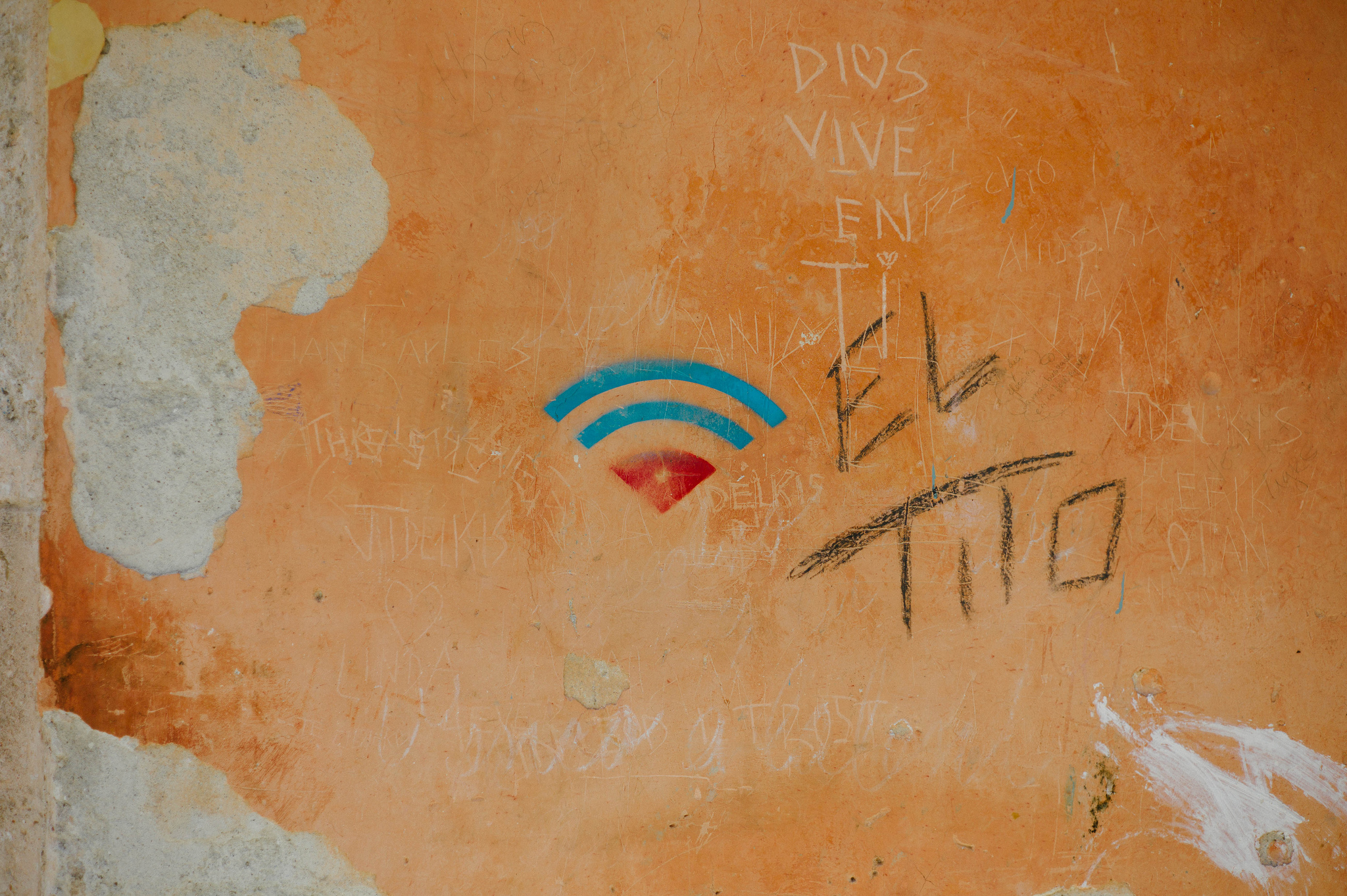
A WiFi symbol in Old Havana, Cuba. Photo by Nano Anderson, taken from Flickr under a CC License BY 2.0.
Top Cuban officials allegedly have rejected an offer from Google to supply the island with free public WiFi throughout the country.
Although neither the company nor the Cuban government has explicitly commented on the matter, multiple news sources seem to have drawn this conclusion from an interview in Juventud Rebelde (“Rebellious Youth”), the island's long-standing youth newspaper. The interview featured Jose Ramon Machado, a contemporary of the Castro brothers, who after forty years at the helm of Cuba's Union of Communist Youth appears as determined as ever to instill in young Cubans the values and morals of Cuba's unique brand of Marxism.
When the reporter asked Machado what he thought about the value of the Internet for Cuban youth, Machado's response was clear:
Esto supone una gran oportunidad, a la vez que un gran reto, porque las nuevas tecnologías resultan novedosas y vitales, no solo para la comunicación entre las personas, sino además para el desarrollo. Todo el mundo sabe por qué en Cuba no hay más Internet, porque ello tiene un alto costo.
Existen algunos que nos la quieren dar gratis, pero no lo hacen con el fin de que el pueblo cubano se comunique, sino con el propósito de penetrarnos y hacer trabajo ideológico para lograr una nueva conquista. Tenemos que poseer Internet, pero a nuestra forma, sabiendo que es una intención del imperialismo manejarla como una vía más de destruir a la Revolución.
Internet access is a great opportunity and at the same time a great challenge, because new technologies are novel and vital, not only for person-to-person communication, but also for development. Everyone knows why there isn't more Internet [in Cuba]. It's because of the high cost.
There are those who would like to give us Internet for free, but they aren't doing this so that Cubans can communicate with one another, rather they're doing it with the goal of penetrating us on ideological grounds, in an effort to make a new conquest. We need to get Internet, but in our own way, recognizing that the imperialist intention is to use it as one more way to destroy the Revolution.
The dystopian imperialist takeover Machado imagines may sound far-fetched, but the essence of his point should not be written off as absurd or dotty. Replace “conquest” with “profit” and the response sounds more reasonable. In the words of Uruguayan journalist Fernando Ravsberg, who has resided in Havana since the early 1990s, “They say that when the donation is too large, even the poor become suspicious.”
Indeed, Google is a bright and shiny representation of the core free market capitalistic values that entities like the Union of Communist Youth, and the Cuban Communist Party on the whole, have sought to deconstruct and disavow since the 1960s.
What Machado didn't mention in the interview is the all-but-confirmed fact that the Cuban government did go so far as to meet with Google executives, including CEO Eric Schmidt, on at least one occasion since the countries decided to renew diplomatic relations last December. US tech media have gone crazy for the story (see headlines from Newsweek, Havana Times) despite the fact that no formal agreement ever appears to have been reached. But it is important that Cuban officials were willing to entertain the possibility at all.
One can surmise that there is an intense debate afoot within the party and government concerning these questions and that not everyone has come down on the same side as Machado. In recent years, it has become far easier for Cubans to own and use tech products and services, and to exchange digital media files using pendrives and bluetooth technology without fear of punishment. WiFi networks are no longer unheard of, though still practically non-existent outside Havana.
Machado's interview may not represent the final word on this story, or on the broader question of US technology companies setting up shop in Cuba. But it does suggest that the debate over access to technology and its political meaning both in and outside the country continues to rage within the heart of Cuba's leadership.




5 comments
Are you kidding me? These idealogues LOST the revolution – and need to be told they do not have the right in the 21st century to hold their people back in their impoverished Guevarian “utopia”. The “soldiers” are all shopping on Amazon… what colonial hubris..